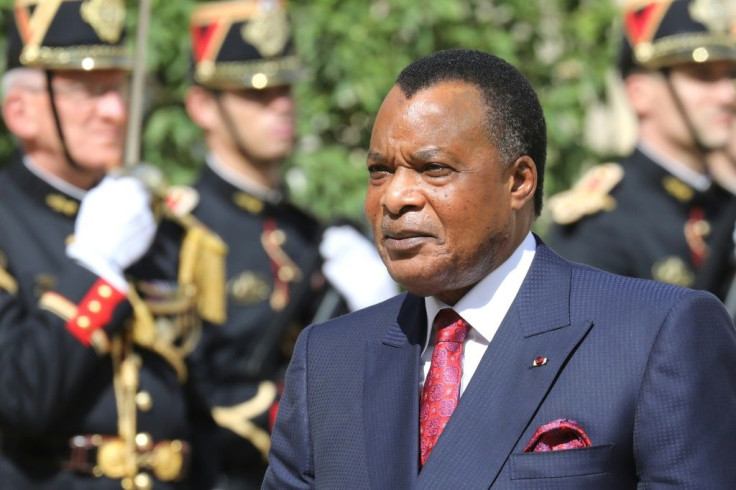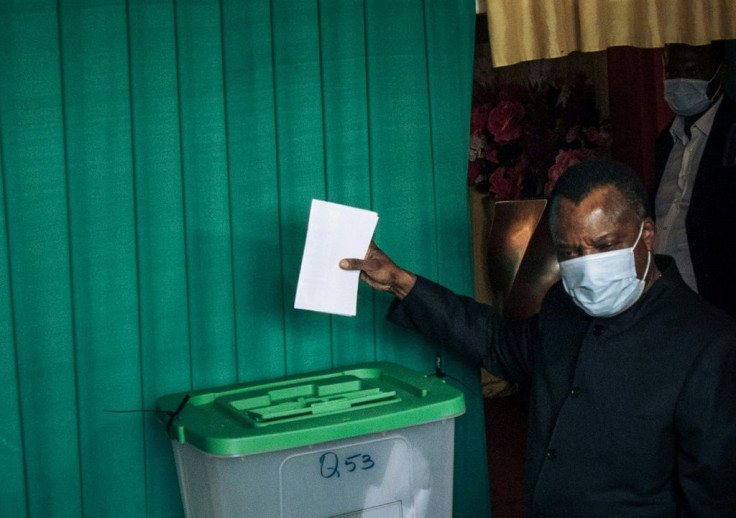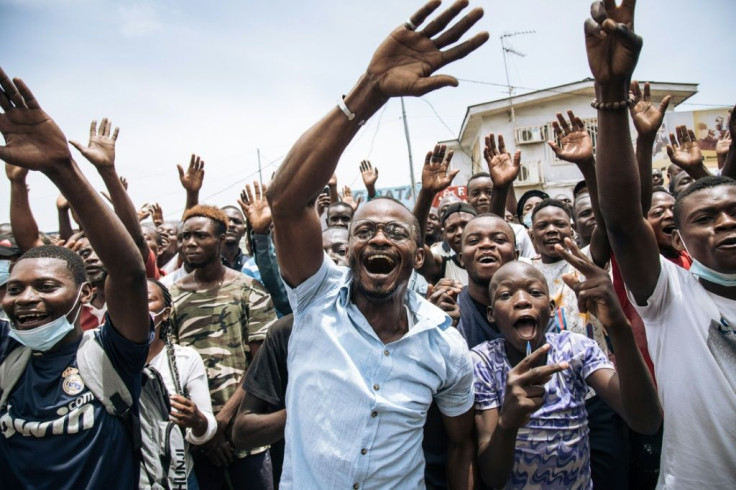Internet Blackout As Congo Votes, With Sassou Nguesso Set To Win
The Republic of Congo voted Sunday in a presidential election boycotted by the main opposition and under an internet blackout, with critics voicing concerns over the transparency of the polls seen as tilted towards veteran leader Denis Sassou Nguesso.
There were no reports of major incidents before polling stations closed, but AFP correspondents said access to the internet and social media, as well as text messages, was cut.
In some areas voters complained that their names weren't on the electoral list.

Provisional results are not expected for days.
"The only uncertainty is what score Mr. Sassou will tell the electoral commission to give him," said Congolese novelist Emmanuel Dongala, contacted by AFP at his US home.
The 77-year-old Sassou Nguesso is widely expected to win against six contenders, led by economist Guy-Brice Parfait Kolelas, who revealed Saturday that he is gravely ill with Covid-19.
His campaign posters asked voters to help him deliver a "knock-out blow" -- or a first-round win so that no run-off vote will be required in the central African oil exporter.

Sassou Nguesso, a former paratrooper, first rose to power in 1979 and has since accumulated 36 years in office, making him one of the world's longest-serving leaders.
Speaking after he cast his ballot, Sassou Nguesso said that the "atmosphere of peace" during the election campaign -- marked by police crackdowns on the opposition -- was "a good sign for our democracy".
But when asked about security when election results are announced, a moment that triggered a wave of violence at the last vote in 2016, he responded: "I'm not God".
Sassou Nguesso's opponent Kolelas left aboard a medical plane for to Paris for treatment, his campaign said.

Kolelas, 60, had posted a video message Saturday from his sickbed, declaring he was "battling against death" after taking off a respiratory mask.
"Rise up as one person... I'm fighting on my deathbed, you too fight for your change," he urged supporters, saying the election was "about the future of your children" before replacing his mask.
Kolelas, who tested positive for Covid-19 on Friday, was the runner-up in 2016's presidential election.

Shops were closed and only security vehicles were seen in Brazzaville city centre during voting.
Congo's influential Catholic Church -- which was not accredited to observe the polls -- has expressed "serious reservations" about their transparency and warned of an internet shutdown.
The largest opposition group, the Pan-African Union for Social Democracy or UPADS, is boycotting the poll in which some 2.5 million people are eligible to vote.
UPADS -- the group of former president Pascal Lissouba, who died in France last August -- is the only opposition party to have a parliamentary group in the current national assembly.
"Overall, the Congolese shunned the ballot box," said rights activist Brice Makosso. "The polling stations were empty."
Flanked by its giant neighbour the Democratic Republic of Congo as well as Gabon, the former French colony has abundant oil reserves and most of its budget comes from petroleum revenue.
But its economy is in a slump, hurt by a collapse in world crude prices, long-standing debt, and the pandemic, as well as a reputation for corruption.
Sassou Nguesso campaigned on agricultural development and portrayed himself as a defender of Congo's youth -- the average age of the population of five million is just 19, according to UN figures.
After first coming to power in 1979, Sassou Nguesso was forced to introduce multi-party elections in 1991 and was defeated at the ballot box a year later.
But he returned to power in 1997 following a prolonged civil war.
He has won every election since, which the opposition have mostly slammed as fraudulent.
A constitutional amendment in 2015, which ended a ban on presidential candidates aged over 70 and scrapped a two-term limit, allowed him to run again in 2016.
Two rivals who contested the 2016 results -- former army general Jean-Marie Michel Mokoko and ex-minister Andre Okombi Salissa -- were later jailed for 20 years, effectively sidelining the opposition.
Twenty African Union observers were deployed on election day. Their hcead of mission Dileita Mohamed said the voting had taken place more freely than in 2016.
© Copyright AFP 2024. All rights reserved.





















